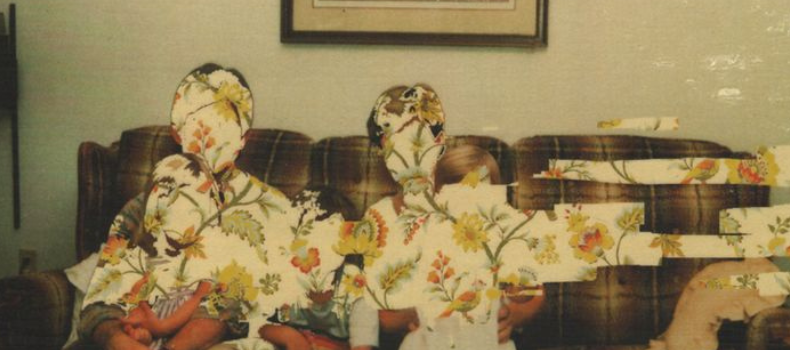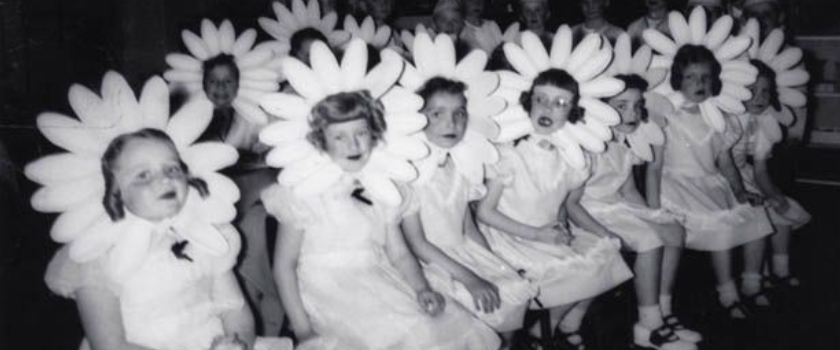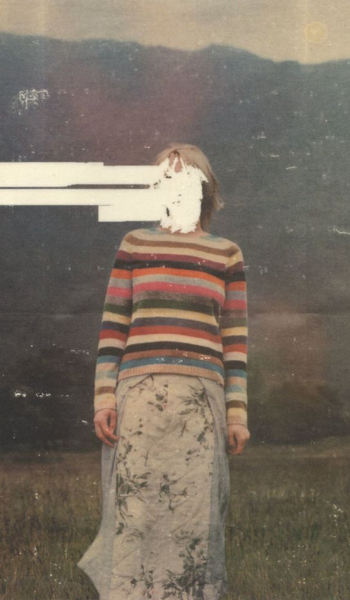Autistic Women, A Forgotten Population

We spoke with Fernanda Quirós about the challenges faced by the autistic women’s community in Costa Rica and around the world.
Fernanda Quirós, Philosophy professor at the University of Costa Rica (UCR) and the Universidad Estatal a Distancia (UNED), activist and late-diagnosed autistic, told us a little about the challenges faced by autistic women in Costa Rica.
She begins by clarifying the following point:
FQ: Generally when people think of autism, they think of it as a disorder or that people in some way or another are sick. So, they often use words like symptoms, ailments etc. Also even the word asperger. But, for several years now, already the autistic community and specialist in the area have been raising another way of visualizing the issue. All the old theories that thought these ideas of disease, illness, disorders are left behind and now autism is read under what is the “neurodiversity paradigm”. I wanted to clarify that. It is not about people with autism because the “with” implies having something: I have the flu, I have glasses… but it is something external to me […] we are going to talk more about autistic people, it is something internal with which we are born, it is part of our identity.
What is the prevalence of autism in women compared to men and why do you think there is this disparity in diagnoses?
The prevalence is the same. Autism does not make a distinction with respect to gender. I believe that the prevalence is the same, however, when it comes to diagnoses there is precisely that disparity in terms of gender. […] the tests and all the analyses to diagnose autism are focused more on men and also […] there is a social perception that women have to be a certain way. Women have to be quiet, introverted.
For example, in my case I was diagnosed until I was 30 years old, while at school I was simply a very quiet girl, very introverted because that is what is generally expected of women, of girls. So, the teachers never noticed anything different from me, nothing to worry about.
But that’s just it: the prevalence is the same, however there is that disparity because of the social perception of what is held about women who have to be introverted, quiet. And in that way autistic women/girls tend to go unnoticed and do not see the need to give them a diagnosis.
What are some of the common stereotypes about autism that may uniquely affect women and how can these stereotypes be effectively addressed?

It affects to the extent that if you do not have a diagnosis, you do not know how to explain what is going on in your life and you will not be able to access the support that is required. You spend your whole educational or social life being the odd one.
Now, how to identify a case in which the person is autistic and another in which the person is introverted? Well, just for that there are specialists who can give information on this. But, the first thing to do is to eradicate the fact that women cannot be autistic, or are autistic to a lesser degree, by simply granting them to be introverted. There are a lot of other factors that can be studied and break away from that.
Precisely there is something known as the phenomenon of the unique autistic person. That is to think of the idea that the autistic person is that little guy who is a man, who does not speak and who swings somehow; or, on the contrary, a man, but brilliant. Like Sheldon Cooper.
In fact, no autistic person is the same as any other, and it is necessary to break with the idea that there are only two extremes, which are men, but that women can also be autistic.
Therefore, we need specialists not only to be thinking about the phenomenon of the single autistic person, but to be open, minimally open to listen to the experiences of women who suspect they may be autistic. And to apply these tests, these analyses, etc., in an objective manner and not simply discarding that “you are a woman, so you are simply introverted because autism is focused on men who sway and do not speak”. To break, rather, all those dynamics that they have.
We are not talking about people with autism because the “with” implies having something: I have the flu, I have glasses… but it is something external to me. […] we will rather talk about autistic people, it is something internal with which we are born, it is part of our identity.
Fernanda Quirós
What specific challenges may autistic women face in terms of mental health, emotional well-being, and access to appropriate mental health services?
Regarding access to adequate mental health services, that is very interesting to me. Because I am doing some work on that and what we have found is that there is no access to mental health in a comprehensive way. The Caja only diagnoses children, it does not diagnose adults. That is difficult because if an adult person wants to be diagnosed, they have to go and pay privately and that is very expensive. Taking into account the high cost of living, it is sometimes an obstacle to have that diagnosis and then be able to access the required support needs.
In the case that the Caja has diagnosed and wants to carry out a process, what we have found is that the appointments to psychology or psychiatry are reduced to appointments every 6 months and that appointment lasts 5 minutes. The person who is attending is simply typing on the computer and that’s it. They just give medication, but they never talk to the person themselves.
My sister, for example, is also autistic and she has that case: psychiatry appointments every 6 months, they last 5 minutes and the person who takes care of her never talks to her. She just asks my mom a general question and that’s it. Just to see if she should be given more or less medication. Talking about health issues is much more complex, but that is not present.

autistic women in costa rica
In terms of adult autistic women, the fact of requiring some psychological therapy becomes even more necessary thinking about the burdens that women have on a social level. Many women have to be heads of household, take care of their sons and daughters who, in most cases, are also autistic, and so on. The whole conglomerate of what it implies to be autistic, plus what it implies to be a woman in this patriarchal society.
Another thing within the specific challenges [is that] when it comes to going to schools and work centers, if you say “Well, I am an autistic person, I am going to need these supports”, the diagnosis is questioned. This questioning tends to be more focused on women, precisely because they will make comments such as “You don’t look like that”, “No, you are just shy”, “But, there are many people like that, so don’t worry, you don’t have anything”. What that does is to delegitimize.
autistic women in costa rica
In my sister’s case, when she was in school, it also happened a lot that we would bring the diagnosis, we would tell the teacher “She needs this and these accommodations”. The teacher, in the first years of school, would look at the diagnosis saying “Well, Jimena doesn’t look like Carlitos“. Why? Because Carlitos precisely was a man who did not speak, who swayed. In the case of my sister, [she] didn’t do those things, so it was already a reason to delegitimize and not believe in the diagnosis. And, again, that delegitimization of the diagnosis is usually more present in women. The fact of telling them “No, you are not autistic, you are just shy and that’s it”. Well, they are denying you the rights and support needs that you have. It is not something whimsical.
Another challenge women face is that women are more likely to mask. That is, they stop being themselves and act according to what society establishes as “correct”. This has repercussions because it causes us crises, it takes spoons (energy) away from us.
How can family members, friends, educators and health professionals best support autistic women and help them in their daily lives?
First of all, listen to autistic people. Because many times it is assumed that all autistic people are the same, so [it is thought] that there is a manual that we try to apply to people. To that extent, they are overriding the autonomy of the autistic person, who in reality is indeed a person capable of making his or her own decisions. Rather, what is done in cases of adult women is to infantilize them.
So, the first thing to do would be to listen to what they have to say. What is the way in which people close to them can help them. Because we cannot assume. If we assume we are falling into the stereotype of the unique autistic phenomenon, when each autistic person will have his or her own sensory profile. This will translate into support needs that will be totally different. So: listen to what the person has to say, validate what the person says and support according to what he/she has commented.
We have seen you giving talks on this topic, what has the experience been like?
The experience has been good because people are usually interested in the subject. Especially relatives of autistic children who cannot find information in the Costa Rican Social Security Fund. They are given the diagnosis but they are adrift. So, this type of talks are quite encouraging. But what I have also found is a lot of ignorance and, on the part of a certain sector, a lot of resistance to the neurodiversity paradigm that I mentioned at the beginning.
For example, here in Costa Rica and in many parts of the world, there are organizations that focus on, in one way or another, giving speeches to supposedly “cure” autism. Maybe they do not say the word disease directly, but their discourse is loaded with the idea of seeing the autistic person as a sufferer, as someone to be infantilized, as someone whose family is the one who has to decide for him or her. So, this whole series of scenarios is what is most present in society. Well, facing this, the autistic community at the international level we have made several initiatives of individual or collective forms to position the paradigm of neurodiversity.

autistic women in costa rica
There is a phrase from the movement of people with disabilities: “Nothing about us without us”. The autism community rightly picks up on that phrase to say “Yes, we need to talk about autism, let’s talk about it. But let’s take autistic people into account as well”. Because now that you mention the talks, it is curious that [when] they give talks on autism, they invite specialists, everybody, except the autistic person.
Well, I have given two talks and what I have found is that I am the first person who comes to these organizations to [speak to them] being autistic. And what happens is that the other people who usually give talks often invalidate the experiences of [autistic] people, especially when it comes to women. Because of all this connotation that there is that women are simply introverted, shy, but the real autistic person is the man who does not speak and sways.
So yes, the talks have been very nice to be able to talk to people and show them other perspectives, but there are also a lot of obstacles that still exist. Both for believing in an erroneous vision of autism, as well as for gender inequality with respect to women.
Have these talks been organized by you alone or with other people? Do you think there will be more?
At the moment, I have given two talks and yes it has been individually, but globally there are many people who are responsible for activism in social networks. There are even books that have been written about the experiences and from those books they also do more activism. It is curious because most of those who do activism in social networks are women.
For example, we can mention Alita in Mexico. Sara Codina in Spain. There is also a blog called Autiblog that is run by an autistic woman. There are even three other pages that are also run by women who, precisely, are in charge of breaking this stereotype of “we can’t be autistic”. Well, yes, we are. Because it’s not something we decide to be, but something we are born with. There are two books, one written by Alita, another one written by Sara, where they reflect that experience of having lived 30-40 years without knowing that one was autistic, because of the fact of having been a woman and, therefore, that doctors came to minimize the issue.
Obviously I am willing to do more talks. In fact, it has happened to me that in my social networks I usually post information about autism and, as a result of that, there are already 2 women who have felt very identified and have started to ask more in depth questions. Now they are looking for a diagnosis. Precisely because before there was a lot of ignorance about autism, especially when it comes to women.
In Costa Rica, is there still a lack of support for this issue?
In Costa Rica there is a group called Adultos Autistas de Costa Rica. The group is willing to give talks, but for the moment this group is more focused on being a socialization support group for all those people who are isolated and autistic. It is a meeting point: we are all here, we are all autistic, these things happen to us, we have these traits. It is like a kind of identification.
The group of autistic adults has also done activism in social networks to promote the neurodiversity paradigm. But what has happened is that it has not been very well received. Many times we are labeled as young rebels who simply want to go against the grain [and] we have to continue with the old theory.
So yes, here in Costa Rica the issue of the neurodiversity paradigm is still in its infancy and there is a lot of resistance to this change, but it is a necessary change. Because the way in which autism is treated right now is harmful to all and all the people who are on the spectrum and who want to be treated with dignity, to respect our autonomy and that we are people who simply have different characteristics, but that does not mean that we should be infantilized.
What you say about infantilizing autistic people is very interesting. How do you think this happens or what does it affect at an educational level, also in terms of getting a diagnosis from a professional? Do you feel that this infantilization happens a lot in women? Like the fact that the treatment is different.
Yes, because many times people do not have correct information about autism. The Caja gives them a diagnosis to their daughter or son and, because there is so much misinformation, what happens is that the family thinks it is the worst. Like being given a diagnosis of terminal cancer, that everything is going to go wrong.
Under that perspective, they start to raise their sons and daughters in such a way that they cannot be independent. So, they put them, for example, in special education. And, what happens, is that [with] special education tomorrow if they want to opt for a technical [college] or a university career they cannot do it because the universities do not accept those degrees that come from special education; when autism is only a psychosocial and dynamic disability. It is not a cognitive disability. Therefore, autistic people could have access to universities or also in making decisions regarding their lives.
Many families simply say, “No. He or she can’t, so I’m going to be in charge”. It’s a form of parenting because of the lack of knowledge that results in autistic people not being able to have an independent life. But yes you can it is a myth that you can’t.
autistic women in costa rica

In the United States, there is an organization called Autism Speaks. That organization funds research that focuses on how to eugenicize or fix the brains of autistic people. Which is terrible. That same organization has taken it upon itself to reproduce these discourses of autism as a disease, even though the word disease does not appear literally.
Then, there are even terrifying advertisements where they say “Autism stole my child” and someone appears crying and the child […] isolated and unable to do anything for his life. And the ugly thing is that there is a method of behavioral analysis that is in charge of removing autism from people. They give them electroshocks, they work with reward and punishment therapies. If the autistic person is stiming they punish him/her, it can be with electroshock. If tomorrow he/she stops doing it then they give him/her a prize, they let him/her use his/her favorite toy.
Or, there is one called calm hands therapy. Some autistic people tend to have stimings with their hands. The quiet hands is to go about taking that away from the person because it’s bad and that in school just being immobile and not doing any behavior that’s inappropriate.
autistic women in costa rica
[Also], autistic people tend to have special interests and those special interests are very deep, very intense and we will always express them. For example, my special interest is Harry Potter, so I can wear things, clothes alluding to Harry Potter. And so, there are other people. Someone may like or have special interest Kuromi or some animated character and wear a dress of that animated character or paint their hair in colors. Precisely those actions, which for us are very good and make us feel happy and we are proud to express it, many times society sees it as if we were childish. They make the association that we are childish, therefore, we cannot make decisions or be a rational person.
That could be another way. Which makes no sense at all because there is nothing wrong with expressing one’s tastes, as long as it does not harm third parties. We are also in the full capacity to be able to reason, make decisions, have an independent life, etc.
Sensorial Sunsets in collaboration with Fernanda Quirós, Philosophy professor at the University of Costa Rica and the Universidad Estatal a Distancia.
Navigate articles




